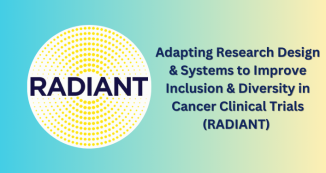
14 Aug Funding Opportunity with the Northwest Roybal Center for Translational Research on Aging – Proposals due Sept 1st
The Northwest Roybal Center for Translational Research on Aging is submitting a competing continuation renewal and invites investigators to submit pilot proposals to be included in the application. The center is soliciting translational intervention projects that seek to promote the health, well-being, quality of life, and productivity of older adults with cognitive impairment, midlife and older adults at risk for cognitive impairment, and their caregivers.
Seeking applications which focus on:
- Sustaining behavior change
- Promoting physical activity
- Maintaining and enhancing mobility
- Novel programs and/or practices that employ evidence-based interventions and/or engage new technologies
About this Opportunity
Details & Eligibility
- Up to $75,000 is available to fund a one-year study.
- All application materials are due Sept 1, 2018.
- Applications should be a maximum of 2 single-spaced pages (excluding references) and follow NIH format: background and significance, specific aims, analysis plan, plans for dissemination and future funding.
- A one page budget, also following NIH format should also be included.
- UW Faculty (at all levels) from healthcare-focused disciplines such as nursing, psychology, social work, physical therapy, occupational therapy, medicine are eligible to apply.
Funding Announcement
29 KBNorthwest Roybal Center Funding AnnouncementHave a Question?
Contact Elaine Walsh, PhD, Roybal Pilot Core Co-director / Email
About the Northwest Roybal Center (NRC)
The Center aims to promote the translation of basic behavioral and social sciences research to improve health, well-being, quality of life and productivity of older adults with cognitive impairment and their caregivers. The NRC focuses on the systematic and strategic translation of well-researched methods of assessment and evidence-based interventions along the full continuum of environments in which older adults reside and receive care (including private homes, retirement communities, assisted living residences, adult family homes and skilled nursing facilities).







